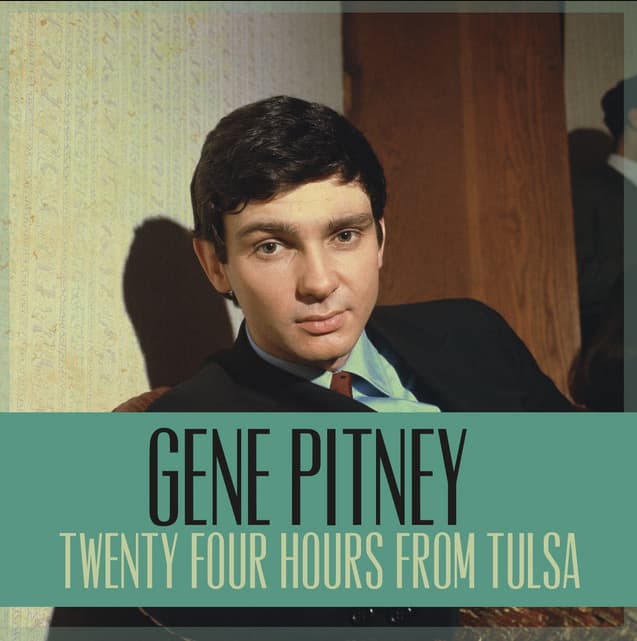
Gene Pitney – “Twenty Four Hours from Tulsa”: A Dramatic Tale of Unexpected Love and Heartbreak
Gene Pitney’s “Twenty Four Hours from Tulsa” is a classic pop ballad that tells a poignant story of love, temptation, and betrayal. Written by the legendary songwriting duo Burt Bacharach and Hal David, the song was released in 1963 and became a significant hit for Pitney. It climbed to No. 5 on the UK Singles Chart and reached No. 17 on the Billboard Hot 100 in the United States. With its vivid storytelling, lush orchestration, and Pitney’s emotionally charged performance, the track stands as one of his most iconic songs.
The song begins with a gentle, sweeping orchestral arrangement, immediately setting a cinematic tone. The strings and brass create a sense of movement, reflecting the narrator’s journey, while the rhythm builds gradually to mirror the emotional intensity of the unfolding story. The instrumentation, characteristic of Burt Bacharach’s sophisticated style, blends pop and orchestral elements seamlessly, giving the song a timeless quality.
Lyrically, “Twenty Four Hours from Tulsa” tells the story of a man on a long road trip, just a day away from reuniting with his love in Tulsa. However, during a brief stop, he meets another woman and unexpectedly falls for her. Lines like “I was only twenty-four hours from Tulsa / Only one day away from your arms” capture the dramatic irony of the situation, as proximity to his original destination becomes irrelevant in the face of his new feelings. The lyrics are a masterclass in storytelling, painting vivid images of the chance encounter and its emotional aftermath.
The chorus, “I hate to do this to you, but I love somebody new,” is both heartbreaking and revealing. It expresses the narrator’s regret and the inevitability of his actions, making the listener sympathize with his internal conflict. This line serves as the emotional core of the song, encapsulating the pain of sudden, unexpected change in love.
Pitney’s vocal performance is central to the song’s impact. His voice, with its dramatic vibrato and distinctive tone, conveys the narrator’s turmoil and regret with stunning clarity. Pitney’s delivery is filled with both urgency and vulnerability, drawing listeners into the narrative and making them feel the weight of the narrator’s decision. His ability to express such deep emotion elevates the song from a simple story to a powerful musical experience.
The orchestration, arranged by Bacharach, is rich and dynamic, adding depth and texture to the song. The use of strings, horns, and percussion creates a sense of grandeur, while the rhythm subtly evokes the motion of a road trip. This attention to detail enhances the storytelling, making the listener feel as though they are traveling alongside the narrator. The arrangement builds to a dramatic crescendo, mirroring the emotional climax of the lyrics.
Since its release, “Twenty Four Hours from Tulsa” has been celebrated as a quintessential example of 1960s pop music, blending sophisticated songwriting with heartfelt storytelling. Its themes of love, temptation, and regret resonate universally, ensuring its enduring appeal. The song’s success helped solidify Gene Pitney’s reputation as one of the era’s most talented vocalists and performers, while also showcasing Bacharach and David’s brilliance as songwriters.
In the decades since, “Twenty Four Hours from Tulsa” has remained a favorite among fans of classic pop, admired for its narrative depth and Pitney’s emotive performance. Its place in pop culture has been cemented through its use in films, television, and cover versions, ensuring that new generations continue to discover its timeless charm.
In the end, “Twenty Four Hours from Tulsa” is more than just a song—it’s a story brought to life through music. Gene Pitney’s passionate delivery, combined with Bacharach and David’s masterful composition, creates a track that continues to captivate listeners with its drama, beauty, and emotional honesty. For fans of classic pop and storytelling through song, “Twenty Four Hours from Tulsa” remains an unforgettable masterpiece.